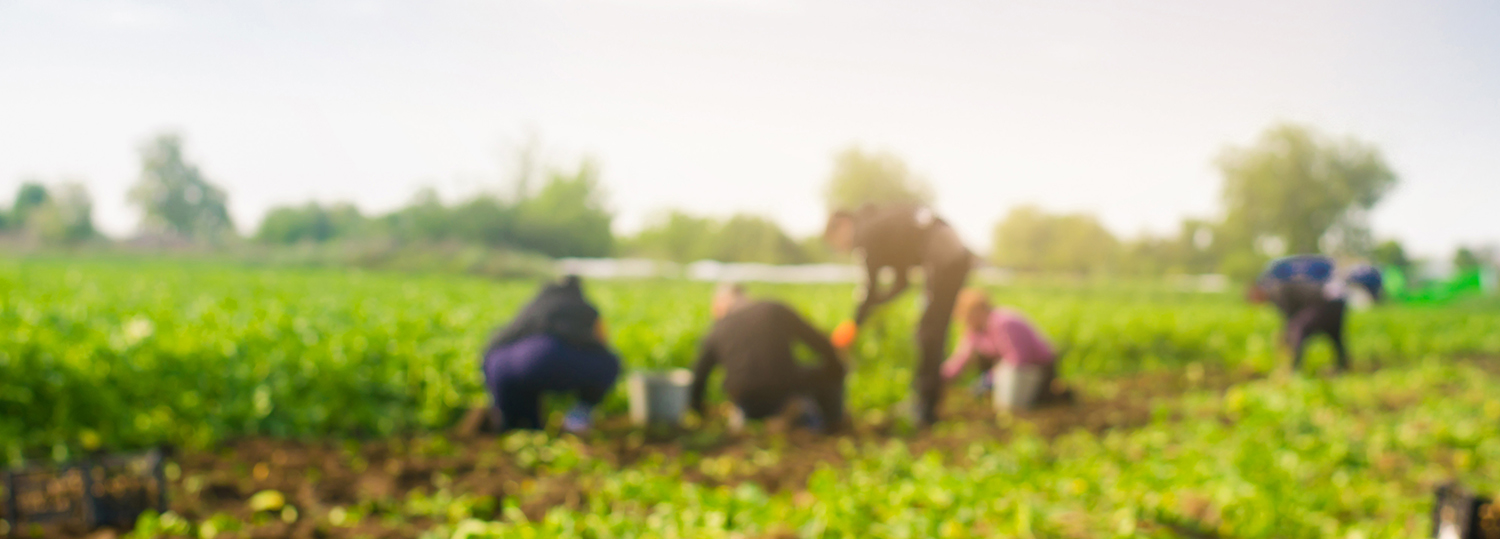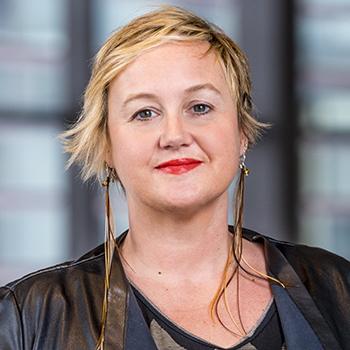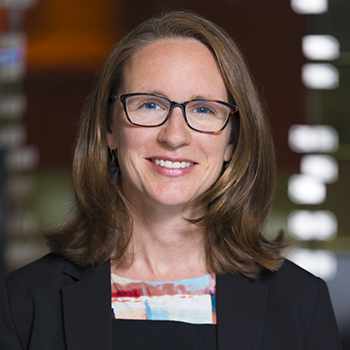
“You know the fear that closes your throat, like you know that something really bad is about to happen?”
That is how Jenna Hennebry felt in early March 2020 when it became clear that the world was on the brink of a global pandemic. Though, like many, she was scared for the health of her loved ones, Hennebry also feared for the well-being of another group close to her heart: migrant agricultural workers. More than 50,000 people from developing countries such as Mexico, Jamaica and Guatemala are employed by Canadian farmers each year, largely through the federal government’s Seasonal Agricultural Worker Program.
For nearly 20 years, Hennebry, an associate professor of Communications Studies and co-founder of Wilfrid Laurier University’s International Migration Research Centre, has been studying the obstacles that migrant agricultural workers face in Canada when trying to access health care. She knew that the combination of crowded living accommodations, language barriers, social isolation and fear of deportation could prove fatal in the context of COVID-19.
“The rest of us were all being told to isolate, to stay home and not see people who aren’t in our families, but migrant workers were coming to Canada and expected to live in crowded conditions with people from all different countries,” recalls Janet McLaughlin, associate professor of Health Studies at Laurier. “We knew we needed to do whatever we could to spread awareness.”

Jenna Hennebry
McLaughlin and Hennebry, who both maintain close personal connections with migrant workers they met during their doctoral field research, teamed up with Susana Caxaj, an assistant professor at Western University, to form the Migrant Worker Health Expert Working Group. In March, the trio started meeting with academics and medical experts from across Canada, along with clinical and social service leaders representing key regions where migrant agricultural workers live and work.
“In the early days, our focus was on documenting our COVID-19-related concerns and sharing them with the federal government,” says McLaughlin. “We also wrote commentaries for news outlets to try to raise public awareness.”
Despite the working group’s initial efforts to share its recommendations with government officials, it wasn’t until 31-year-old Bonifacio Eugenio Romero and 24-year-old Rogelio Muñoz Santos, both from Mexico and working in the Windsor-Essex Region, tragically died of COVID-19 within a week of each other in May and June that the public started to take notice.

Janet McLaughlin
“When the first two workers died, I felt like I had failed in a way because those deaths could have been prevented,” says McLaughlin.
“We started doing dozens of media interviews with outlets as far away as the New York Times and Washington Post, and as close as the Waterloo Region Record and CBC Kitchener-Waterloo. It felt like a bit of a twilight zone living between the two worlds of running after my children and then being in front of the camera.”
The working group seized the moment to increase pressure on all levels of government. They wrote letters to provincial and federal ministers, met with MPs and MPPs, made recommendations to agencies such as Employment and Social Development Canada, and consulted with the Mexican embassy.
“It has all been very purposeful,” says Hennebry. “We know we are successfully stirring the pot because there has been greater attention at the federal level than there has ever been. As a representative of the working group, I have been asked to participate in a performance audit of the federal government’s COVID-19 response in relation to temporary foreign workers by the Office of the Auditor General.”
The collective efforts of advocates like Hennebry and McLaughlin have resulted in numerous government funding announcements to address the health and safety of migrant agricultural workers, including a $58.6-million pledge from the federal government in July.
“I’m hopeful that this may be a catalyst for more fundamental reforms, whether that be open work permits or permanent residency or increased inspections,” says McLaughlin. “All of these are possibilities that maybe weren’t as likely a year ago.”
More than six months into the pandemic and many years after beginning their research in the field, Hennebry and McLaughlin are as driven as ever to help fix what they call a “deeply broken system.”
“Employers in the agricultural sector have been enabled to skirt numerous regulatory and legal requirements that apply in other sectors,” says Hennebry. “That’s why we didn’t name it the ‘Migrant Worker COVID-19 Working Group.’ We are the Migrant Worker Health Expert Working Group and we will continue to advocate for the protection of workers’ health, human and labour rights.”
– Jenna Hennebry
The Migrant Worker Health Expert Working Group has taken a multi-pronged approach to its activism. Here are some of the ways the group has moved its cause forward:
“We have personal connections with workers and I have been speaking to them by phone or on Facebook or WhatsApp. We have tried to give the government living examples of how policies may have unintended consequences because the reality on paper is quite different than the reality in practice.” – McLaughlin
“The focus of our working group is to bring together people with specific knowledge about migrant worker health to look at all of the different areas that intersect. Labour law, occupational health and safety, public health, bilateral governance. Everyone has a different lens and I find our meetings to be exceptionally useful and fruitful.” – Hennebry
“We are not naively assuming that by showing problems to the government it is going to fix them. We have said, ‘Here is how you can fix it.’ Explicitly. We feel that if you lay out concrete ways forward for the government, the government can’t claim it didn’t know how to fix it.” – Hennebry
“There have been many times when I’ve spent hours talking to reporters and do not get quoted in their story. You’re basically handing them your decades of research on a silver platter and saying, ‘Here, run with it.’ And that’s why it’s not about ego – I just want to make sure the story gets out there in a responsible manner and that the reporters have the key facts.” – McLaughlin
“We have written letters and given lots of guidance to MPs and MPPs, and that information has made it to the floor. There are some parliamentary recordings where you can hear, verbatim, phrases that Janet and I effectively wrote. We know that government officials are paying attention because they are now seeking us out.” – Hennebry
“We have been reformatting old laptops in Spanish and English and delivering them to workers so they have better access to information and can stay connected with their families back home. Our website also links to lots of other organizations that are supporting workers on the ground.” – Hennebry
“Migrant workers have the lived experience and theirs should be the most important voices in the conversation. Documenting their experiences in our research makes a difference. You can’t dismiss something as an anecdote if you have peer-reviewed research papers demonstrating that what a person is saying is true and indeed impacts the majority of workers.” – McLaughlin